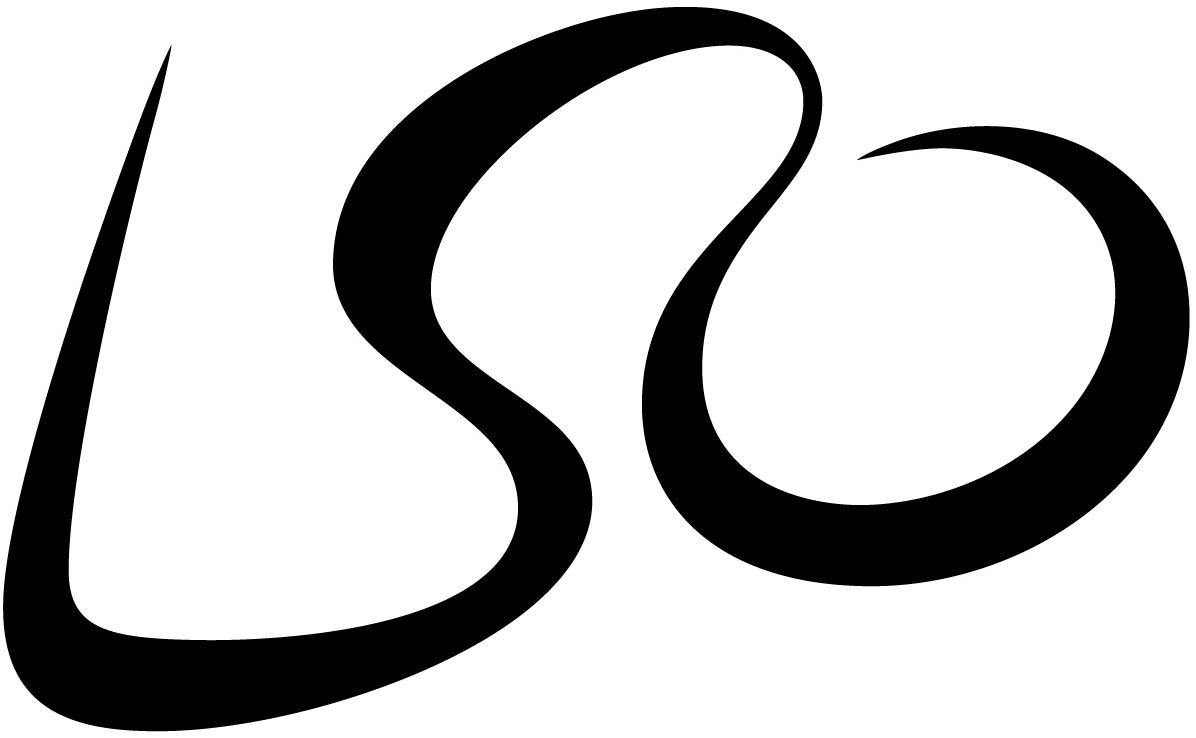LSO Discovery
Friday
Lunchtime Concert
Friday 23 October 2020 12.30pm

Friday 23 October 2020
Friday Lunchtime Concert
Britten Temporal Variations
Lateef Romance for oboe and harp, arr for oboe and piano
Mozart Violin Sonata K378, arr for oboe and piano
Olivier Stankiewicz oboe
Alasdair Beatson piano
Rachel Leach presenter
Visit our website for information on how we are ensuring activity at our venue LSO St Luke’s is COVID-19 secure.
The support of our audience has truly never been more important for the Orchestra and its world-class artistic programme. By supporting us now and in the months to come, you will help us to continue to adapt our music-making and activities to meet the challenges of these times, including sharing the gift of music with our local communities through our LSO Discovery programme.
This performance is generously supported by the Estate of the late Ms Denise Antenen and our Technical Partner, Yamaha Professional Audio.
Benjamin Britten
Temporal Variations
1936

- Theme
- Oration
- March
- Exercises
- Commination
- Chorale
- Waltz
- Polka
- Resolution
Benjamin Britten was born into an ordinary family in Lowestoft in 1913. His father was a dentist and his mother a gifted amateur musician. After lessons with leading British composer Frank Bridge, Britten gained a place at the Royal College of Music and immediately started to make a name for himself.
The Temporal Variations were written for a concert of new music in December 1936. The first performance perhaps suffered from being under-rehearsed; Britten had only finished the score three days previously and the piano part was still in sketch form. The work was then put away for revision and promptly forgotten about until after Britten’s death 40 years later.
After a statement of the theme there are eight variations in an array of contrasting styles. Far from being a light early work, the variations are now seen by some as a powerful anti-war statement.
Note by Rachel Leach
Yusef Lateef
Romance for oboe and harp, arr for oboe and piano
1991

Yusef Lateef was born in Chatanooga. At the age of five his family moved to Detroit and Yusef, then called William, found himself surrounded by jazz. He took up the tenor saxophone and flute and by the age of 18 was making a living playing in swing bands.
In 1949 he toured with Dizzy Gillespie and began studies in composition at Wayne State University. Around this time he also converted to Islam and changed his name.
His profile and fame grew steadily from then onwards; he began playing many other woodwind instruments including oboe and bassoon (unusual for a jazz musician) and Eastern instruments such as Chinese wooden flutes, koto and arghul.
Subsequently his compositions started to take on a more Eastern flavour and he began to be described as ‘the first world musician’ or a ‘new age composer’. His core influences, however were always rooted in jazz.
Note by Rachel Leach
Wolfgang Amadeus Mozart
Violin Sonata K 378, arr for oboe and piano
1779

Mozart is now considered to be one of the greatest composers who ever lived and the central figure of the classical period. He was born in 1756 and found fame early on when his father, Leopold, a composer and music teacher, recognised his son’s amazing musical gifts. Mozart wrote his first pieces at the age of five, his first symphony at eight and an opera aged eleven. At around 17 he got a job as court composer in Salzburg and started producing music on a daily basis.
Mozart wrote violin sonatas throughout his early life and transformed the humble format. This one (performed today as an arrangement for oboe and piano) was written in 1779 whilst the composer was still in Salzburg. It features the expected three movements (fast, slow, fast) but from the very beginning there is more equality between the players than usual and a huge variety of melodic and rhythmic invention throughout.
Note by Rachel Leach
Artist Biographies

Olivier Stankiewicz
oboe, LSO Principal

Having just recorded three Mozart sonatas for piano and violin with Jonathan Ware for Delphian Records, Olivier has recently performed at Usedomer Musik Festival and at Wege durch das Land festival with Berlin Counterpoint, and has recorded the Strauss concerto with London Mozart Players for Scala Radio. He has also given recitals at Wigmore Hall, Snape Maltings and the Louvre, collaborating with Alasdair Beatson, the Doric and Castalian Quartets.
He has performed as a soloist with Orchestre National du Capitole de Toulouse, Orchestre de Lille, French National Orchestra and with Tokyo Sinfonietta, and given recitals at the Isabella Gardner Museum in Boston, the Morgan Library in New York and Festspiele Mecklenburg-Vorpommern in Germany.
Forthcoming online appearances include Haydn's Sinfonia Concertante and Maderna's Music of Gaity with the LSO, plus recitals for the Phillips Collection in Washington DC and the Temporada National de Conciertos in Colombia.
Olivier has been LSO Principal Oboe since 2015.
Alastair Beatson
piano

© Kaupo Kikkas
© Kaupo Kikkas
Scottish pianist Alasdair Beatson is renowned as a sincere musician and intrepid programmer. He champions a wide repertoire with particular areas of interest: classical, early romantic and French music (especially Fauré), alongside the music of today’s composers. A prolific chamber musician, Alasdair’s colleagues include Steven Isserlis, Pekka Kuusisto, Viktoria Mullova, Pieter Wispelwey, the Doric, Gringolts and Meta4 quartets, and the Nash Ensemble.
The 2019 release on Pentatone of Felix and Fanny Mendelssohn's music for cello and fortepiano with Johannes Moser joins a discography of solo and chamber recordings on BIS, Champs Hill, Claves, Evil Penguin and SOMM labels. Highlights of the 2019/20 season included performances at Wigmore Hall and Kings Place, a residency at Sage Gateshead, recitals on fortepiano of Beethoven violin sonatas with Viktoria Mullova, and appearances in festivals including Bath Mozartfest, Edinburgh International, Esbjerg, kamara.hu and West Cork. Since 2019 Alasdair has been Co-Artistic Director of the Swiss chamber music festival at Ernen.
Watch online: YouTube Sundays
Every Sunday this Autumn we'll be sharing an excerpt, work or full concert from our season at LSO St Luke's on our YouTube channel: 14 weeks of great music to enjoy for free.
Thank You for Joining Us
The support of our audience has truly never been more important. You can help us to continue to adapt our music-making and activities to meet the challenges of these times.
You can also donate now via text.
Text LSOAUTUMN 5, LSOAUTUMN 10 or LSOAUTUMN 20 to 70085 to donate £5, £10 or £20.
Texts cost £5, £10 or £20 plus one standard rate message and you’ll be opting in to hear more about our work and fundraising via telephone and SMS. If you’d like to give but do not wish to receive marketing communications, text LSOAUTUMNNOINFO 5, 10 or 20 to 70085. UK numbers only.
Thank you.
Keep Exploring
- Find out more about LSO Discovery on our website.
- Follow the LSO on Facebook, Instagram and Twitter for quizzes, listening suggestions and more.
- Subscribe to our YouTube channel, where you can watch over 500 videos, including new music released every Sunday.
- Find us on Apple Music to listen to all our recordings.
- Sign up to our email list to be the first to hear about our latest news and programmes.
Keep scrolling for details of our next Friday Lunchtime Concert…
Watch Again Later
Today's concert was streamed live on our YouTube channel and is available to watch for free for 90 days. Visit youtube.com/lso.
What's Next?
Friday 13 November 2020, 12.30pm
Friday Lunchtime Concert
LSO St Luke's
Fanny Mendelssohn String Quartet
Consone Quartet
Rachel Leach presenter
Tickets on sale Friday 30 October 10am
Tickets are free and must be booked in advance.
Broadcast live on YouTube
Available to watch for 90 days.

